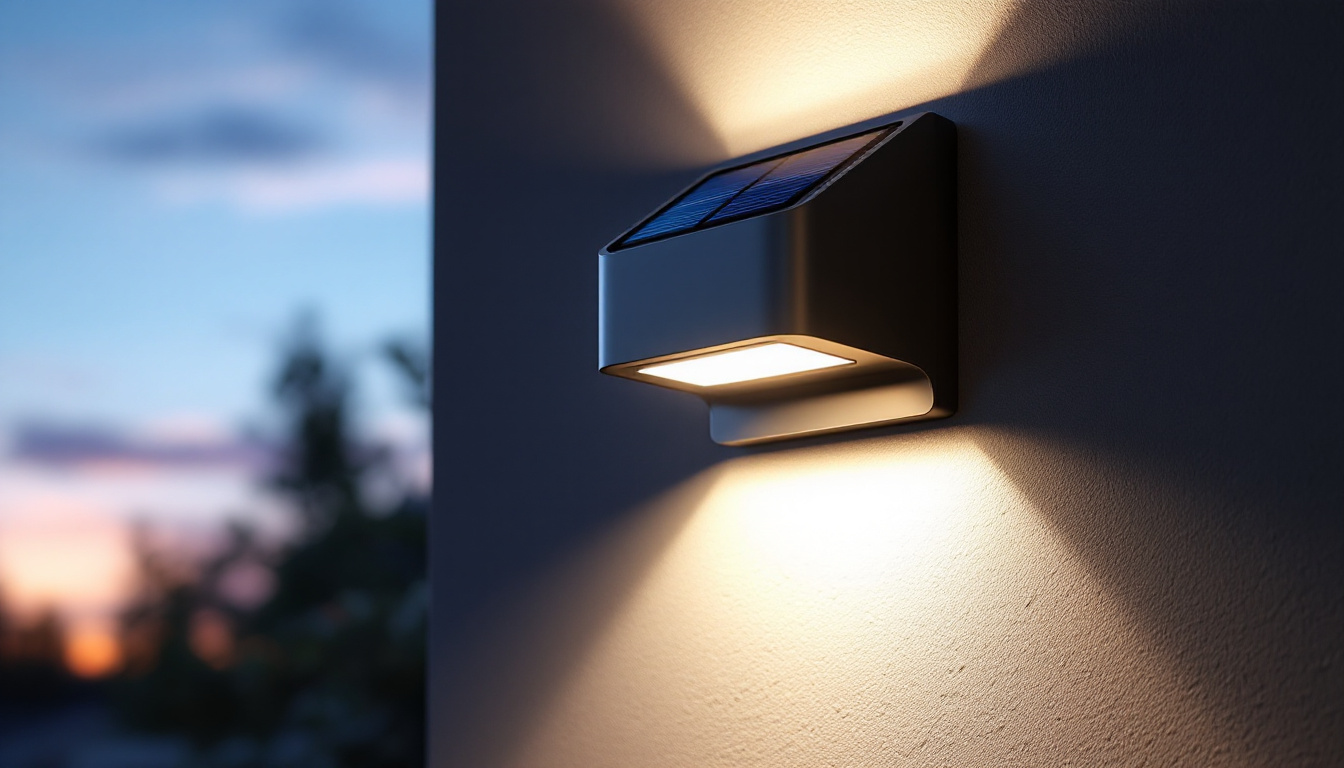
Lighting contractors play a crucial role in enhancing the aesthetics and functionality of outdoor spaces. The right lighting not only illuminates but also transforms environments, making them safer and more inviting. As the industry evolves, staying updated with the latest resources and techniques is essential for contractors seeking to master their craft. This article explores some of the top resources available for lighting contractors, focusing on tools, training, and industry insights.
In the modern landscape of lighting design, software tools have become indispensable. Programs like DIALux and Relux allow contractors to create detailed lighting simulations, helping visualize projects before implementation. These tools enable contractors to experiment with various lighting scenarios, ensuring optimal placement and intensity to achieve the desired effect.
Moreover, many of these software options offer features that calculate energy efficiency and compliance with local regulations. By utilizing these tools, contractors can provide clients with accurate proposals and enhance their credibility in the field. Additionally, some software packages include libraries of fixtures and materials, allowing for a more realistic representation of how different elements will interact within a space. This not only aids in client presentations but also streamlines the design process, reducing the likelihood of costly revisions later on.
Accurate measurements are vital for successful lighting installations. Tools such as light meters and photometers help contractors assess existing lighting conditions and determine the necessary adjustments. Light meters measure the intensity of illumination, ensuring that spaces meet safety standards and aesthetic goals.
Additionally, testing equipment allows for the evaluation of energy consumption, enabling contractors to recommend energy-efficient solutions. This not only helps in reducing costs for clients but also aligns with the growing emphasis on sustainability in the industry. Furthermore, advanced testing tools can analyze color temperature and color rendering index (CRI), which are critical for achieving the desired ambiance in commercial and residential spaces alike. By providing detailed reports on these factors, contractors can demonstrate their expertise and commitment to quality, further solidifying their reputation in the market.
Beyond design and measurement, having the right installation tools is crucial for any lighting contractor. Essential tools include drills, wire strippers, and various hand tools tailored for electrical work. Investing in high-quality equipment ensures that installations are completed efficiently and safely.
Furthermore, staying updated with the latest advancements in installation technology, such as smart lighting systems, can provide contractors with a competitive edge. Understanding how to integrate these systems into existing infrastructures is key to meeting the evolving demands of clients. As smart homes and buildings become increasingly popular, knowledge of wireless controls, app-based management systems, and energy monitoring solutions will not only enhance the contractor’s skill set but also open up new avenues for business. By offering clients cutting-edge solutions, contractors can position themselves as leaders in the industry, ready to meet the future of lighting with confidence and innovation.
Obtaining industry-recognized certifications can significantly enhance a contractor’s credibility and skill set. Organizations such as the National Association of Electrical Contractors (NAEC) and the International Association of Lighting Designers (IALD) offer certification programs that validate expertise in lighting design and installation.
These certifications not only provide knowledge about the latest technologies and best practices but also open doors to networking opportunities. Engaging with fellow professionals through these organizations can lead to collaborations and insights that benefit one’s business.
Participating in workshops and seminars is another effective way for lighting contractors to expand their knowledge. Many manufacturers and industry associations host events that focus on new products, installation techniques, and design trends. These gatherings provide hands-on experience and the chance to interact with industry experts.
Moreover, attending these events fosters a culture of continuous learning, which is essential in a field that is constantly evolving. Contractors can return to their projects with fresh ideas and strategies, ultimately enhancing their service offerings.
In today’s digital age, online learning has become increasingly accessible. Numerous platforms offer courses specifically tailored for lighting contractors, covering topics from basic electrical principles to advanced lighting design techniques. This flexibility allows contractors to learn at their own pace while balancing their work commitments.
Webinars hosted by industry leaders also provide valuable insights into emerging trends and technologies. Engaging in these online sessions can keep contractors informed about the latest innovations, ensuring they remain competitive in a rapidly changing market.
Subscribing to trade magazines is an excellent way for lighting contractors to stay informed about industry developments. Publications such as “Lighting Design + Application” and “LD+A” offer articles on the latest technologies, case studies, and expert opinions. These resources provide valuable insights that can inspire new ideas and approaches to projects.
Moreover, these magazines often feature product reviews and comparisons, helping contractors make informed decisions when selecting materials and equipment for their projects.
Engaging with online forums and communities dedicated to lighting design can be incredibly beneficial for contractors. Platforms like LinkedIn groups and specialized forums allow professionals to share experiences, ask questions, and provide advice. This collaborative environment fosters a sense of community and can lead to valuable connections.
Participating in discussions can also keep contractors updated on common challenges and innovative solutions within the industry. Learning from peers can be just as valuable as formal education, as real-world experiences often provide practical insights that are not found in textbooks.
Many lighting manufacturers provide extensive resources for contractors, including installation guides, product specifications, and design tools. These resources can be invaluable when selecting products for a specific project. Understanding the nuances of different lighting solutions can help contractors make better choices that align with client needs and project goals.
Additionally, manufacturers often host training sessions or webinars to educate contractors about their products. Taking advantage of these opportunities ensures that contractors are well-versed in the latest offerings and can provide clients with expert recommendations.
Attending industry conferences is a powerful way for lighting contractors to network and learn from industry leaders. Events such as LightFair and the International Lighting Design Conference gather professionals from around the globe, providing a platform for sharing knowledge and exploring new technologies.
These conferences often feature keynote speakers, panel discussions, and workshops that cover a wide range of topics. Engaging in these events can inspire new ideas and approaches, ultimately benefiting contractors in their projects.
In addition to large conferences, local networking events can provide valuable opportunities for contractors to connect with peers and potential clients. Many cities have local chapters of industry associations that host regular meetups, providing a more intimate setting for networking.
Building relationships within the local community can lead to referrals and collaborations, enhancing a contractor’s reputation and business prospects. Establishing a strong local presence can be just as important as national recognition.
Finding a mentor in the lighting industry can be a game-changer for contractors, especially those who are just starting. Mentorship programs connect experienced professionals with newcomers, providing guidance, support, and valuable insights into the industry.
Having a mentor can accelerate a contractor’s learning curve, helping them navigate challenges and make informed decisions. This relationship can also foster a sense of accountability and motivation, driving contractors to continually improve their skills and knowledge.
As the demand for sustainable practices grows, lighting contractors must prioritize energy-efficient solutions. Understanding the benefits of LED technology and smart lighting systems can significantly impact a contractor’s approach to projects. These solutions not only reduce energy consumption but also lower costs for clients in the long run.
Incorporating energy-efficient designs into proposals can attract environmentally conscious clients, positioning contractors as leaders in sustainable practices. Staying informed about the latest advancements in energy-efficient technologies is crucial for meeting this demand.
In addition to energy efficiency, the materials used in lighting installations play a significant role in sustainability. Contractors should explore options for sustainable materials, such as recycled or responsibly sourced products. This commitment to sustainability can enhance a contractor’s reputation and appeal to clients who prioritize eco-friendly practices.
Furthermore, educating clients about the benefits of sustainable materials can lead to more informed decisions, ultimately resulting in projects that align with their values and goals.
Staying compliant with local and national regulations regarding energy efficiency and sustainability is essential for lighting contractors. Understanding the codes and standards that govern lighting design can help contractors avoid potential legal issues and ensure that their projects meet safety and performance criteria.
Regularly reviewing and updating knowledge about these regulations is vital, as they can change frequently. Engaging with industry associations and attending relevant training sessions can help contractors stay informed and compliant.
Mastering the craft of lighting design and installation requires a commitment to continuous learning and adaptation. By leveraging the right tools, pursuing training opportunities, and staying informed about industry trends, lighting contractors can enhance their skills and deliver exceptional results for their clients.
As the industry evolves, embracing sustainability and innovative technologies will be key to remaining competitive. By prioritizing these elements, contractors can not only meet client expectations but also contribute to a more sustainable future in lighting design.
Ultimately, the journey to mastering lighting design is ongoing, and the resources available today provide a solid foundation for contractors to build their expertise and thrive in this dynamic field.
Ready to elevate your lighting projects with premium products that combine quality and affordability? Look no further than LumenWholesale, where we provide contractors with spec-grade lighting solutions at unbeatable wholesale prices. Say goodbye to inflated markups and hello to a vast selection of industry-standard lighting that promises reliability and high performance. Plus, with free shipping on bulk orders, you can stock up on superior lighting without the worry of hidden fees. Don’t compromise on quality or value—visit Wholesale Lighting at the Best Value and make LumenWholesale your trusted partner for all your lighting needs.

Discover innovative techniques for lighting contractors using solar-powered lantern lights outdoors.

Discover how UFO LED lamps are revolutionizing the lighting industry and offering lucrative opportunities for contractors.

Discover the essential guide to light bulb base sizes with our comprehensive chart tailored for lighting contractors.

Discover how wall mounted solar lamps can revolutionize lighting installations by enhancing energy efficiency and maximizing profitability.